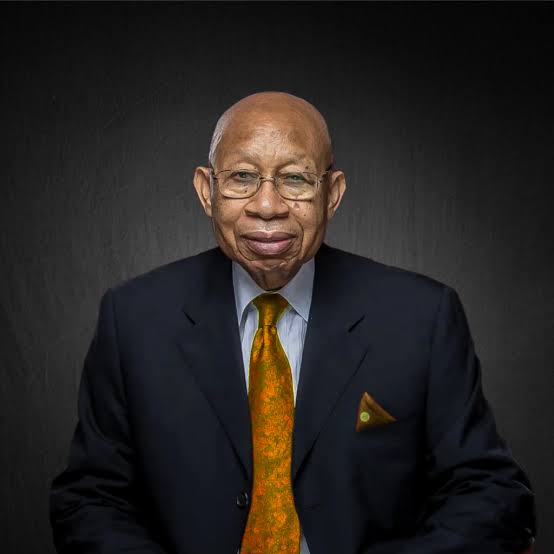Indigenes of Ekugba community in Ohaji/Egbema Local Government Area of Imo State, has accused Seplat Energy of neglect and failure to pay appropriate compensation to them as host community to the company’s oil operations.
The community claimed that it is the rightful owner and principal landlord of the sites housing Ohaji South Oil Wells 3 and 4, as well as a new parcel of land within the F71 section of the Adapalm Estate, where Seplat is reportedly preparing for further oil drilling.
In a strongly worded statement through its legal representatives, George C. Akagha & Co., the Ekugba indigenes issued a 7-day ultimatum to Seplat Energy, demanding immediate engagement and compensation.
The community warned that failure to adhere to their ultimatum could lead to escalated actions, potentially disrupting Seplat’s operations in the area.
The ultimatum was formally delivered via a letter addressed to Seplat and copied to the Imo State Government and all relevant security agencies. The letter, titled “Re-Commencement of Drilling Activities by Your Company within F71 Adapalm Estate, Ohaji”, stressed the company’s obligation under Nigerian law to provide tangible benefits to its host communities.
According to the community, Seplat has not only failed to engage in constructive dialogue but has also continued its activities without regard to the rights of the people of Ekugba.
The letter referenced ongoing legal proceedings over ownership of the contested oil well sites, including Suit No: HOG/14/2014 – Chief Andrew Okorougo & Others vs. Seplat Petroleum Development Company Limited & Others.
The suit, they said, is at an advanced stage in court when yet another oil site was discovered on land they claim ownership of.
The discovery of this additional site and the continued expansion of Seplat’s operations without what the community describes as “due recognition” has sparked renewed outrage, especially among the youth.
The youths, under the aegis of Ekugba Restoration Team (ERT) , have vowed to resist further clearing activities unless the company honors customary protocols, including paying traditional homage to Ekugba and entering into a formal Memorandum of Understanding (MoU) recognizing them as the primary landlords.
They further rejected any existing agreements Seplat might have signed with neighboring communities, insisting that these do not apply to land traditionally known as “Urashi” in Egbema, which they say is exclusively part of Ekugba’s ancestral land.
The community’s letter also challenges Seplat’s claims to legality through old land lease agreements.
They argue that the East Central State Development Authority’s 1964 lease of the Adapalm Estate, later transferred to the Imo State Government in 1976, does not cover mineral rights under the Nigerian Minerals and Mining Act of 2007.
According to the act, a land lease does not automatically confer the right to extract natural resources, a right the community claims has been continuously denied despite decades of oil activities on their land.
They also cited provisions of the Petroleum Industry Act (PIA), which mandates that host communities—specifically landowners of oil sites—be compensated and treated as stakeholders in oil operations.
They alleged that Seplat has failed to comply with this legal requirement.
Despite the community’s claims, Seplat Energy, in a formal response signed by its Managing Director for East Onshore Operations, Ibi-Ada Itotoi, denied any wrongdoing.
The company stated it has been operating within legally acquired portions of the Adapalm Plantation and is unaware of the exact area the community is referring to in their complaints.
The letter emphasized that the Adapalm Plantation was originally leased by the East Central State Agricultural Development Authority from multiple communities, including Egbema, Ohuba, Amafor, Obosima, Obile, and Agwa. The land, according to Seplat, was duly registered at the Land Registry in Enugu and remains the property of the Imo State Government following the 1976 state reorganization.
“Compensation payments for the use and occupation of these lands by Seplat were appropriately and validly made to the Imo State Government,” the company wrote, adding that it operates in full compliance with the Petroleum Industry Act and other relevant laws.
Seplat further argued that all communities who originally leased their land to the East Central Government—including Obuomadike Autonomous Community and others—have been recognized as host communities and are receiving the benefits due to them under Nigerian law.
The company’s statement appears to cast doubt on Ekugba’s claim to exclusive ownership of the disputed land, citing historical agreements and state-level jurisdiction over the plantation area.
However, this rebuttal has done little to calm tensions in Ekugba, where many residents view the company’s response as dismissive.
Community leaders argue that referencing long-expired leases with East Central Government which is not recognized under Nigerian law, and generalizing land ownership among multiple communities undermines their unique claims and cultural ties to the specific portions of land now being exploited.
As the seven-day ultimatum expires, there is growing concern over the potential for confrontation. Community leaders are calling for urgent intervention from the Imo State Government and the Federal Ministry of Petroleum Resources to mediate the dispute and ensure that Seplat fulfills its obligations under both traditional and statutory frameworks.
Observers have said that the Ekugba-Seplat standoff is a stark reminder of the lingering tensions between oil companies and host communities in the Niger Delta, where decades of extraction have often gone hand-in-hand with neglect, legal battles, and social unrest.
These observers believed that the oil firm must decide whether to revisit its engagement strategy with the Ekugba people—or risk a fresh wave of disruption to its operations in Imo State.





